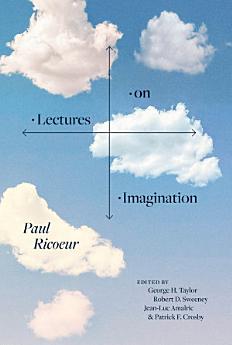Lectures on Imagination
2024年3月 · University of Chicago Press
電子書
384
頁
family_home
符合資格
info
report評分和評論未經驗證 瞭解詳情
關於本電子書
Ricoeur’s theory of productive imagination in previously unpublished lectures.
The eminent philosopher Paul Ricoeur was devoted to the imagination. These previously unpublished lectures offer Ricoeur’s most significant and sustained reflections on creativity as he builds a new theory of imagination through close examination, moving from Aristotle, Pascal, Spinoza, Hume, and Kant to Ryle, Price, Wittgenstein, Husserl, and Sartre. These thinkers, he contends, underestimate humanity’s creative capacity. While the Western tradition generally views imagination as derived from the reproductive example of the image, Ricoeur develops a theory about the mind’s power to produce new realities. Modeled most clearly in fiction, this productive imagination, Ricoeur argues, is available across conceptual domains. His theory provocatively suggests that we are not constrained by existing political, social, and scientific structures. Rather, our imaginations have the power to break through our conceptual horizons and remake the world.
The eminent philosopher Paul Ricoeur was devoted to the imagination. These previously unpublished lectures offer Ricoeur’s most significant and sustained reflections on creativity as he builds a new theory of imagination through close examination, moving from Aristotle, Pascal, Spinoza, Hume, and Kant to Ryle, Price, Wittgenstein, Husserl, and Sartre. These thinkers, he contends, underestimate humanity’s creative capacity. While the Western tradition generally views imagination as derived from the reproductive example of the image, Ricoeur develops a theory about the mind’s power to produce new realities. Modeled most clearly in fiction, this productive imagination, Ricoeur argues, is available across conceptual domains. His theory provocatively suggests that we are not constrained by existing political, social, and scientific structures. Rather, our imaginations have the power to break through our conceptual horizons and remake the world.
關於作者
Paul Ricoeur (1913–2005) was the John Nuveen Professor in the Divinity School, the Department of Philosophy, and the Committee on Social Thought at the University of Chicago. He was the author of many books, including Memory, History, Forgetting, Oneself as Another, and the three-volume Time and Narrative, all published by the University of Chicago Press. George H. Taylor is professor emeritus of law at the University of Pittsburgh. Robert D. Sweeney (1929–2016) was the Don Shula Chair in Philosophy at John Carroll University. Jean-Luc Amalric teaches at the CPGE Arts and Design in Nîmes and the Research Center for Arts and Language (CRAL), EHESS, Paris. Patrick F. Crosby (1948–2020) was an independent Ricoeur scholar
為這本電子書評分
歡迎提供意見。
閱讀資訊
智慧型手機與平板電腦
筆記型電腦和電腦
你可以使用電腦的網路瀏覽器聆聽你在 Google Play 購買的有聲書。
電子書閱讀器與其他裝置
如要在 Kobo 電子閱讀器這類電子書裝置上閱覽書籍,必須將檔案下載並傳輸到該裝置上。請按照說明中心的詳細操作說明,將檔案傳輸到支援的電子閱讀器上。







